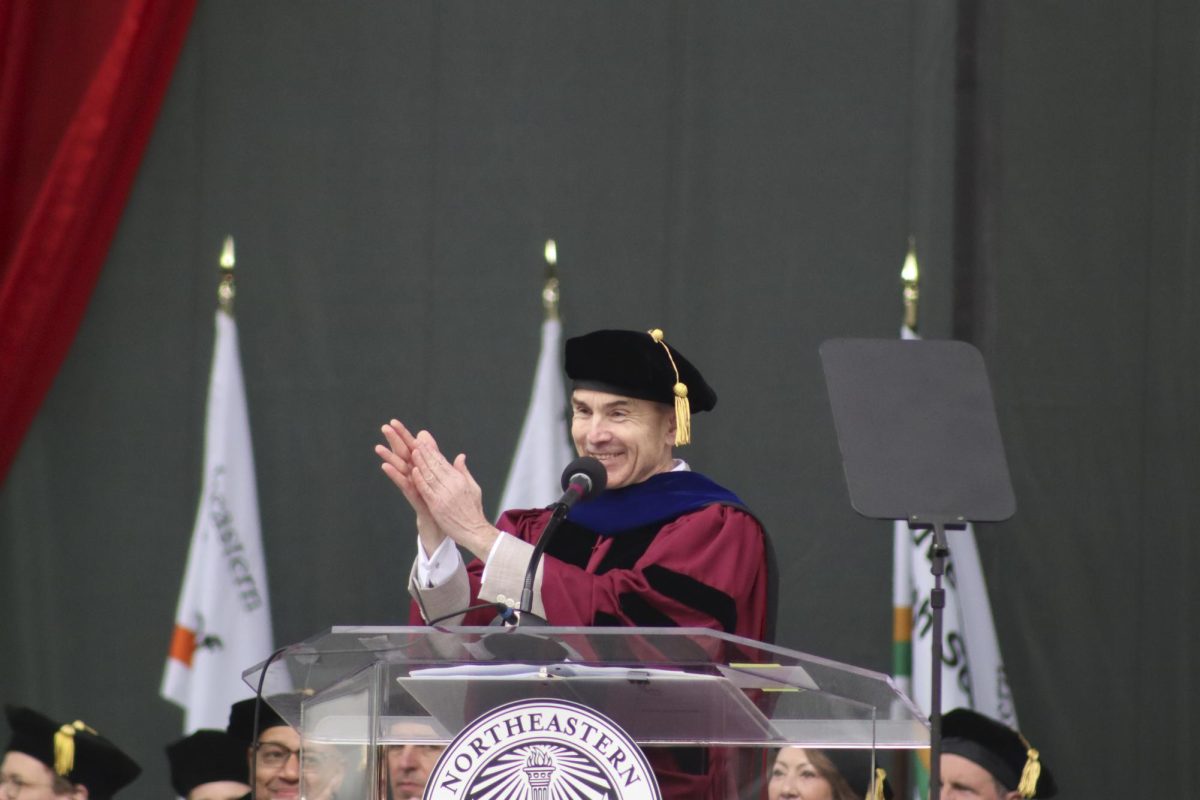By Walter Frazier, News Correspondent
Jonathan Safran Foer, author of ‘Everything Is Illuminated,’ said he has been an on and off vegetarian since he was 9. After his wife became pregnant, he said he decided to research America’s agriculture industry and eating habits not only for himself, but also for his son. Foer spent a year and half investigating the issue, which became the subject of his new book ‘Eating Animals.’
Foer gave a speech last Thursday promoting ‘Eating Animals’ at the Congregation Kehillath Israel in Brookline.
Before the discussion began, he read a short excerpt from the book about his grandmother, who framed his thinking about food at an early age. Growing up, Foer and his brother thought their grandmother was the greatest chef who ever lived, he said.
Foer’s grandmother had only one recipe:’ chicken and carrots. She told them no foods are bad, and the fatter a child, the healthier. Foer said her chicken and carrots was the most delicious thing he’s ever eaten, but it had little to do with how it was prepared or how it tasted. He said the food was delicious because he believed it was delicious.
Foer said his grandmother struggled to find food during the end of World War II in Russia, when a lot of people were dying of famine. She didn’t know if she could survive another day. A farmer saw the horrible condition she was in and gave her a piece of pork. She didn’t eat it simply because it wasn’t kosher, he said.
‘I asked her, ‘You wouldn’t even eat it to save your life?’ And she said, ‘if nothing matters, there’s nothing to save’ and that’s really the thesis of this book. That there’s certain things about us that are so fundamental that if we ignore them, we would be losing something about ourselves,’ Foer said.
After he finished the excerpt, audience members asked a broad range of questions ranging from hunting to the morality of people who do eat meat.
‘There’s a notion that you’re either a perfect vegetarian or you don’t care at all, but in fact there’s a massive spectrum in between,’ Foer said.
If every American ate one less serving of meat a week, it would have the same effect on the environment as taking 5 million cars off the road, he said.
In ‘Eating Animals’ there are about 70 pages of footnotes containing statistical information that justify the reasons behind becoming a vegetarian.
Another point Foer brought up is how Americans eat 150 times as much chicken as they did 80 years ago, and it’s not because they realized how delicious it is, but because food corporations are forcing it on them.
Although some of the statistics he gave were dire, Foer said he thinks people will change their eating habits for the better. Between 25 and 30 percent of the American public have described themselves as vegetarian or vegetarian-leaning, he said.
‘There are many demographic reasons to be optimistic about the issue and I think this conversation will be totally different in five years,’ Foer said.
Attendee Steve Stafford, a 23-year-old graduate of University of Massachusetts-Amherst, said he was pleasantly surprised by Foer’s speech.
‘I was very skeptical coming into this, but he actually made some good points and I was very impressed,’ he said.








